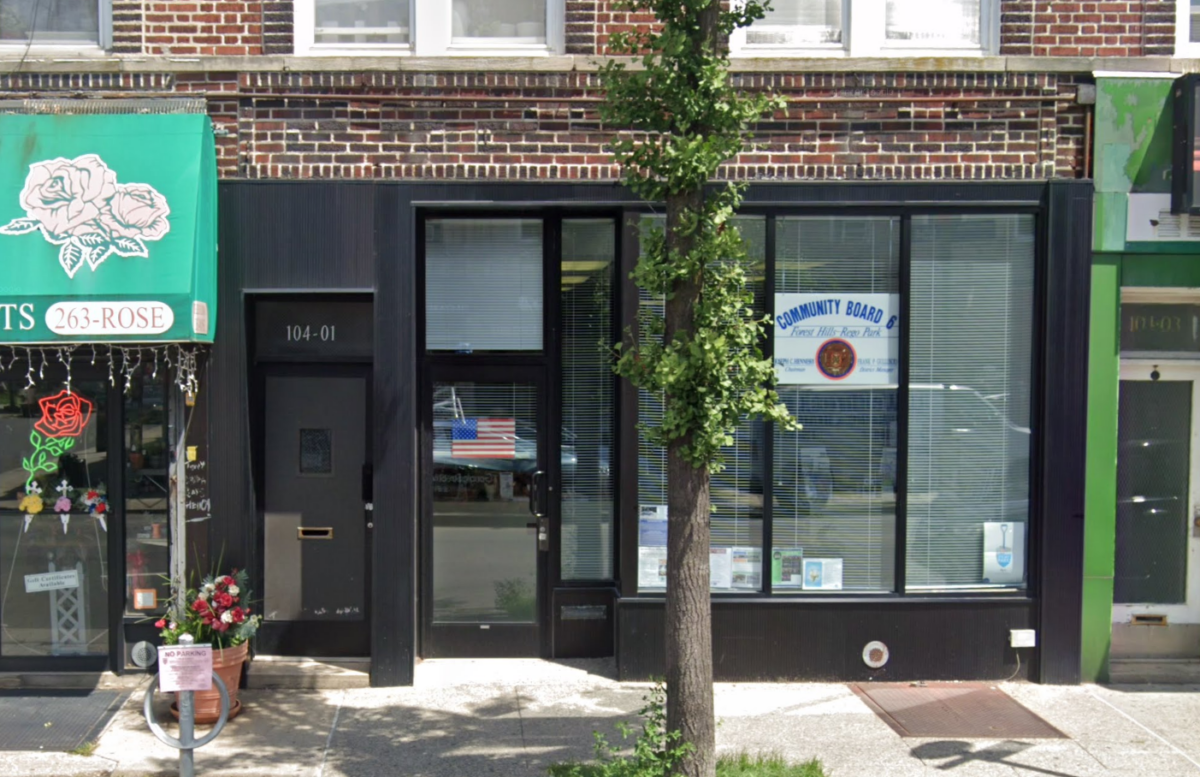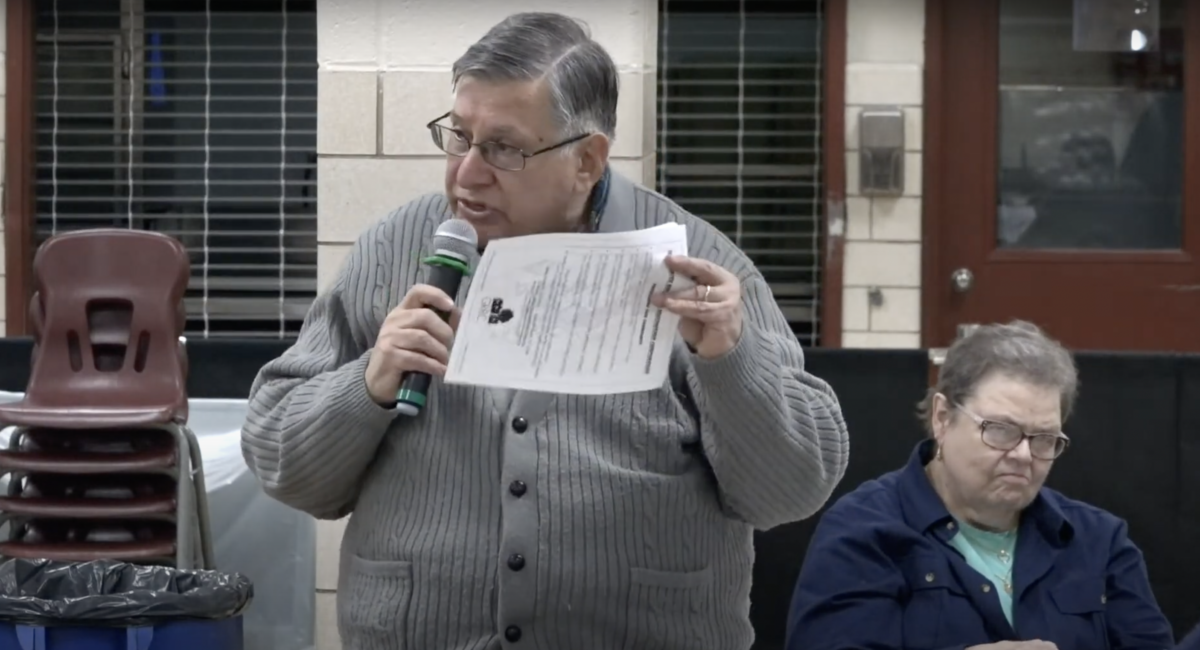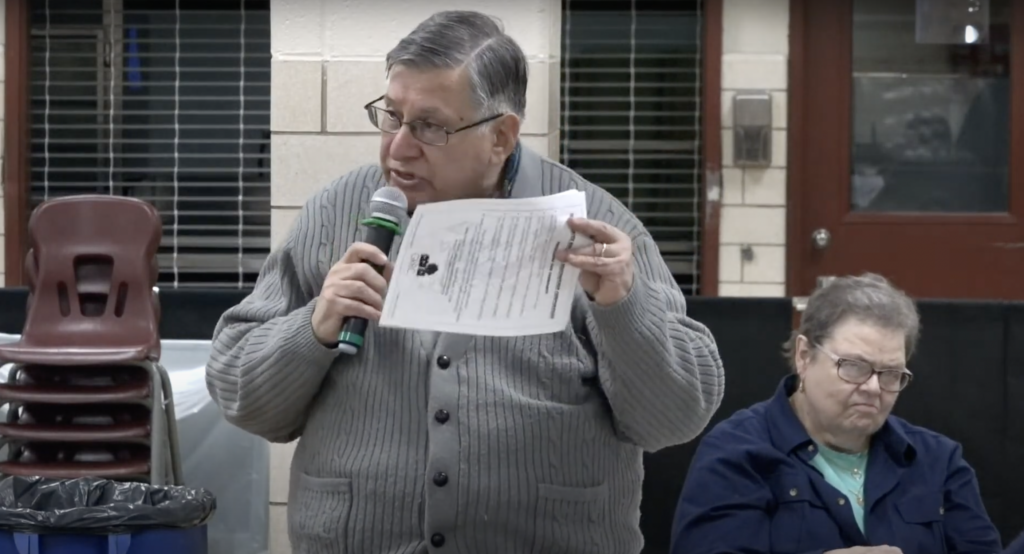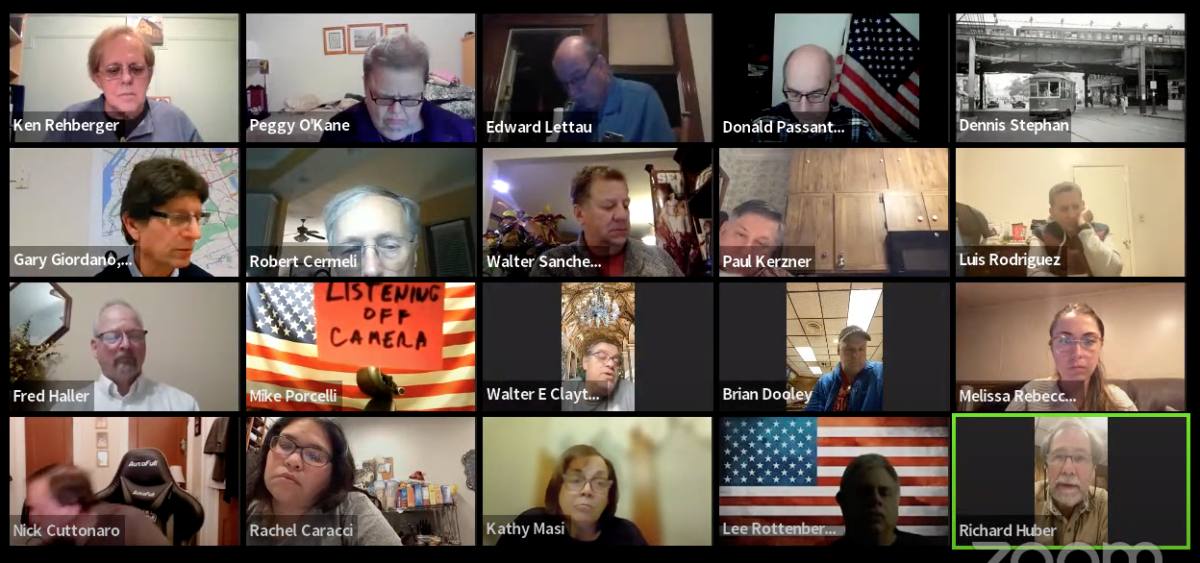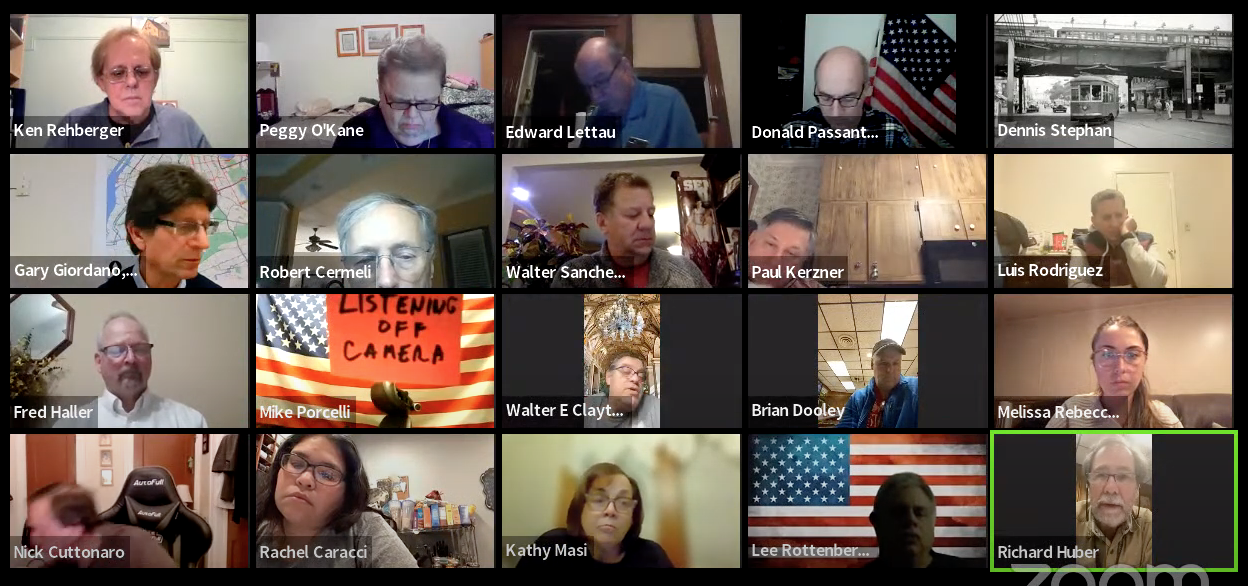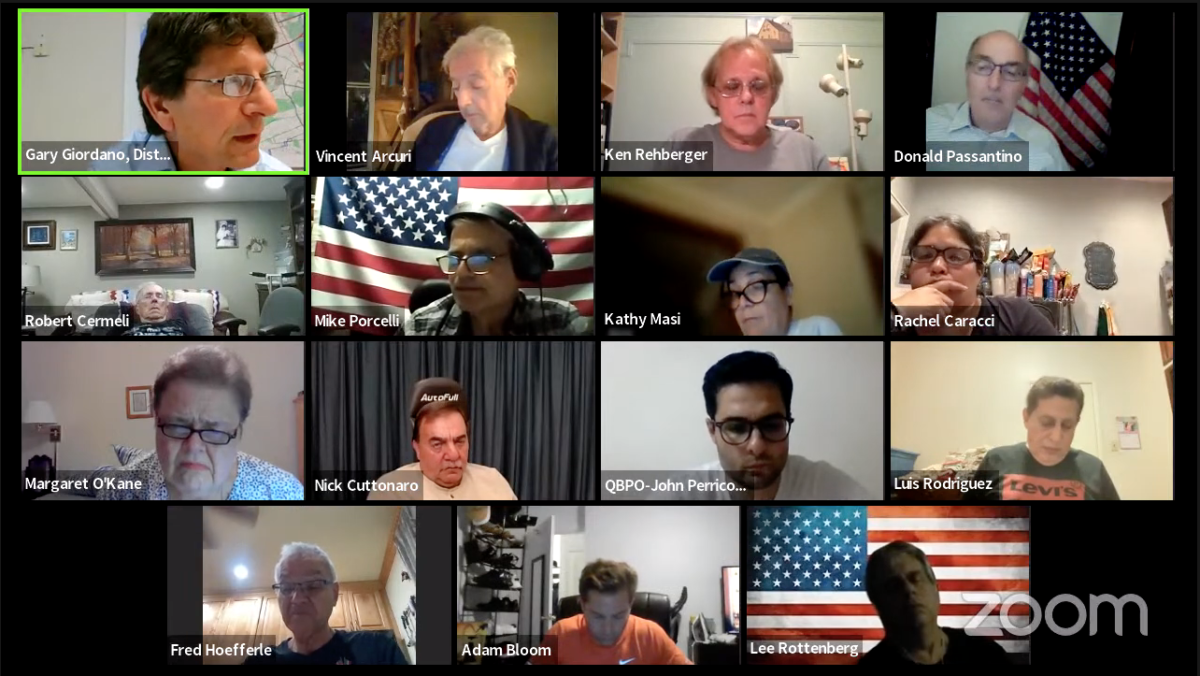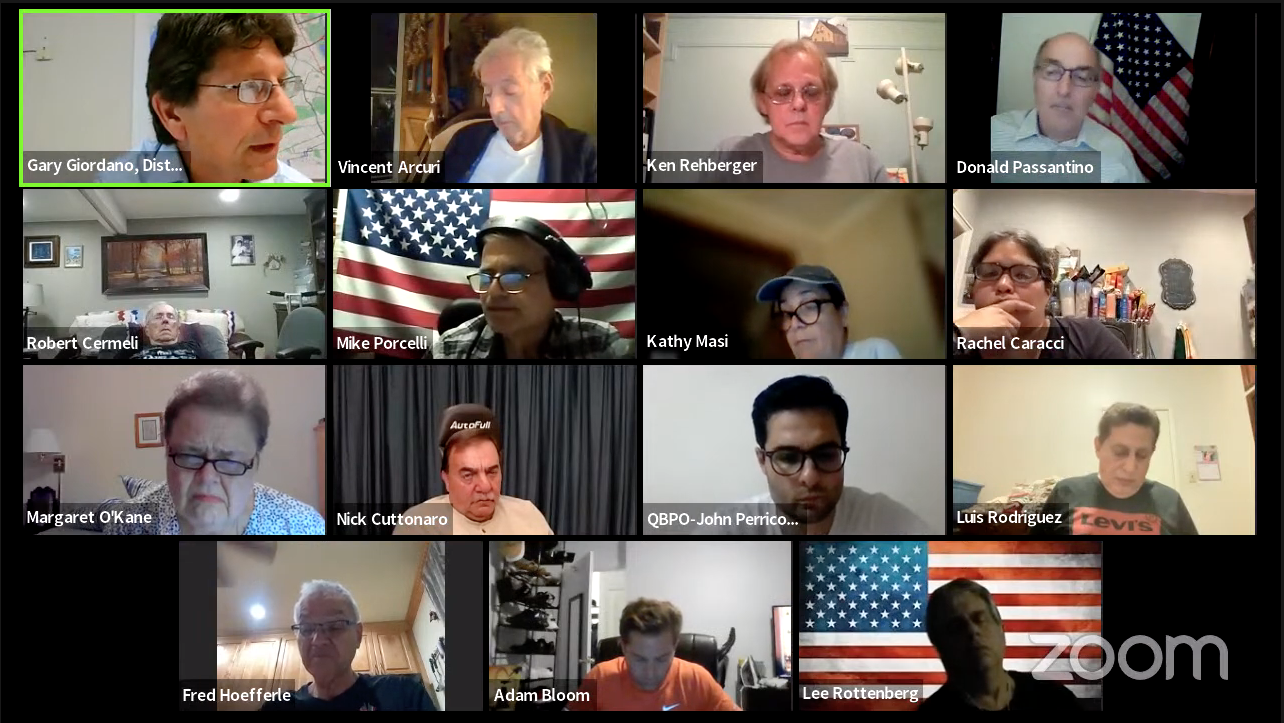Queens BP Announces New Community Board Members
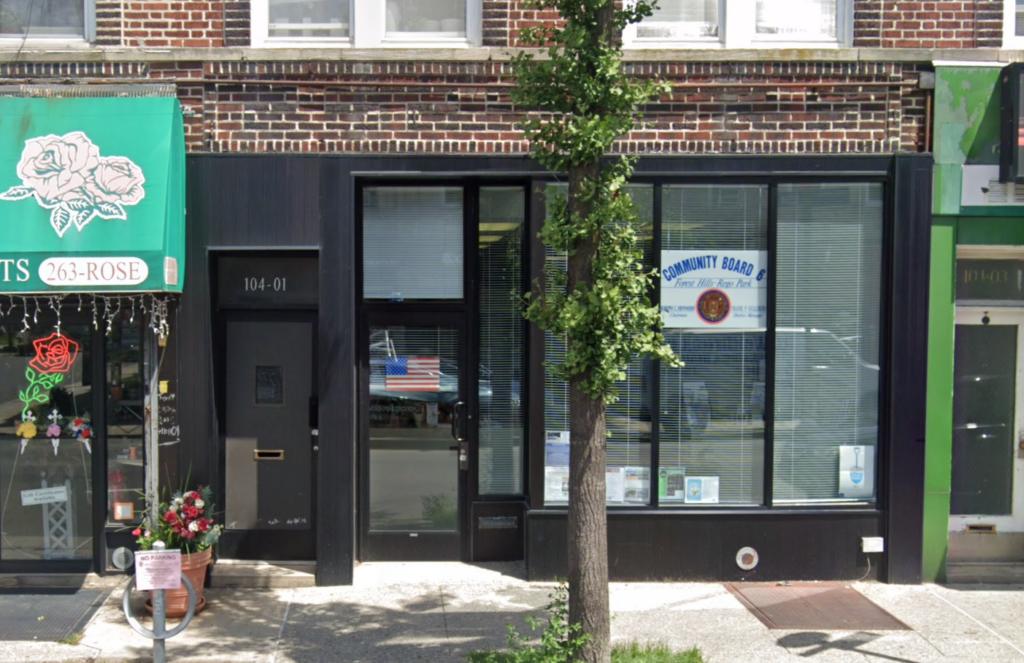
Queens Community Board 6 office on Metropolitan Ave. in Forest Hills (Google Maps)
By Iryna Shkurhan | ishkurhan@queensledger.com
Younger, less white and more reliant on public transportation. This is what the newly appointed members of community boards across the borough look like.
Queens Borough President, Donovan Richards Jr., announced the appointees for 2023-2025 term in a press release on April 5. In an effort to make the boards more representative of the communities they represent, new appointees are more diverse than in previous terms, especially in age.
Half of new members are under the age of 45 and close to a quarter are between the ages of 16 and 35. Before Richards took office in November 2020, almost three quarters of board members were over the age of 45.
An investigation conducted by The City found that community board members are often whiter, more male and older than the neighborhoods they represent. Some argue that older members who remain on their respective board after serving countless terms should make room for members of younger generations.
“I would say that the new board is pretty diverse. I saw it at the first meeting,” said David Aronov, a first time member at 26-years old.
Some boards which meet early in the month, like Community Board 6 — which represents the Forest Hills area — already had new members present at their April meeting.
Aronov, a long time Forest Hills resident, is no stranger to the community board. He attended CB6 meetings as a representative while working for former council member Karen Koslowitz’s office in District 29, for over seven years. Then he ran for her council seat in 2020, and attended the meetings as a political candidate.
“It’s just the way to continue advocating for the community, for my neighbors,” said Aronov, a Russian-speaker part of the Bukharian Jewish community. “And making sure that people’s voices, who have felt for quite some time that they were underrepresented, will be heard on the board.”
As a board member, he hopes to help support small businesses in the community emerging from Covid related strains. And work towards increasing access to public transportation.
Out of a pool of 938 applicants, Richards selected 366 individuals to represent 14 community boards in Queens — 116 are new members. Members are unsalaried and serve in two year terms with each board having a maximum of 50 members.
“Now I get to be a part of impacting change and in fighting for equity right here in my home, and I get to do it alongside like minded individuals,” said Marcelle Lashley-Kabore, 45, after attending her first CB6 meeting as a board member.
Lashley-Kabore is the founder and CEO of Girls with Knowledge, a nonprofit that provides girls in marginalized communities with education, support and resources through female leadership. She is also the CEO of Xposure Foundation, which provides financial literacy initiatives and a range of after school programs for youth across the city and in Westchester county.
While she is engaged strongly in improving communities through her nonprofit career, Lashley-Kabore said she felt disconnected from her own community in Forest Hills, where she has lived for over a decade. Before that, she graduated from China Europe International Business School and lived in Kew Gardens for a decade while working in the corporate world.
“I’m really excited about joining with a collective, to be able to help advise our leaders in government on things that they can do to help make sure that all of us have a better life,” said Lashley-Kabore. “I’m excited to bring my culture, my perspective, my gender, I’m excited to bring all of that.”
She began attending CB6 meetings during the early days of the pandemic. Shortly after she also ran for city council in District 29.
“The historic 2023 class of community board appointees represent the best of Queens. I’m immensely confident in this diverse, dedicated and determined group of public servants and I look forward to the great work they will do on behalf of their neighborhoods over the course of their term,” said the Borough President in a release.
Another diversity factor in consideration was mode of transportation. Slightly more than half of appointed members reported they “mostly” or “often” navigate the borough by using the subway. Nearly a third said that they “sometimes” used a bicycle or other form of micro transport to get around.
“It’s important for young people to be involved because we are now able to make decisions for our generation and our future instead of other people making those decisions for us,” said Aronov.
To continue serving on the board, members are required to reapply at the end of their two-year term and are subject to reconsideration.



